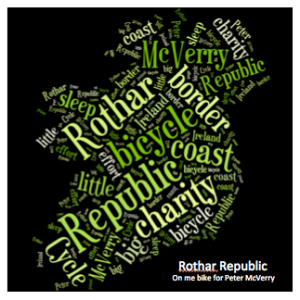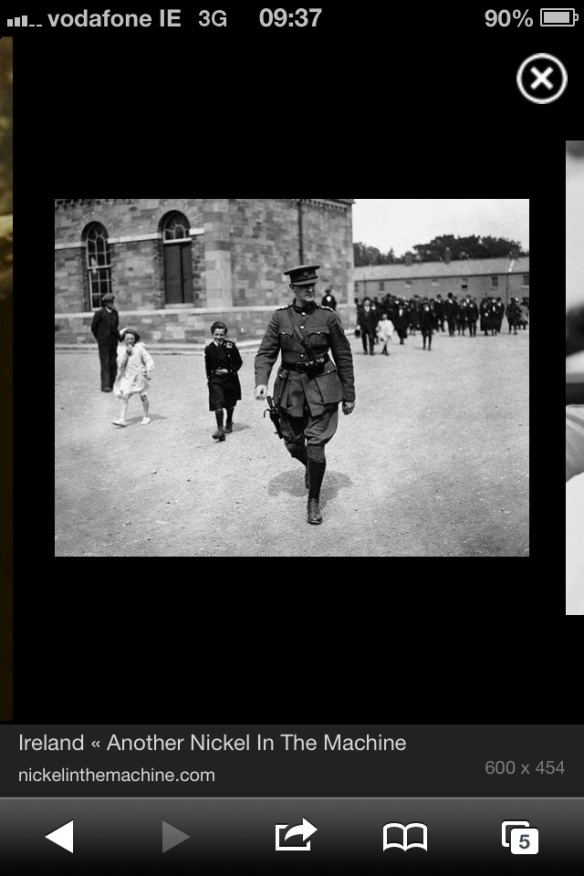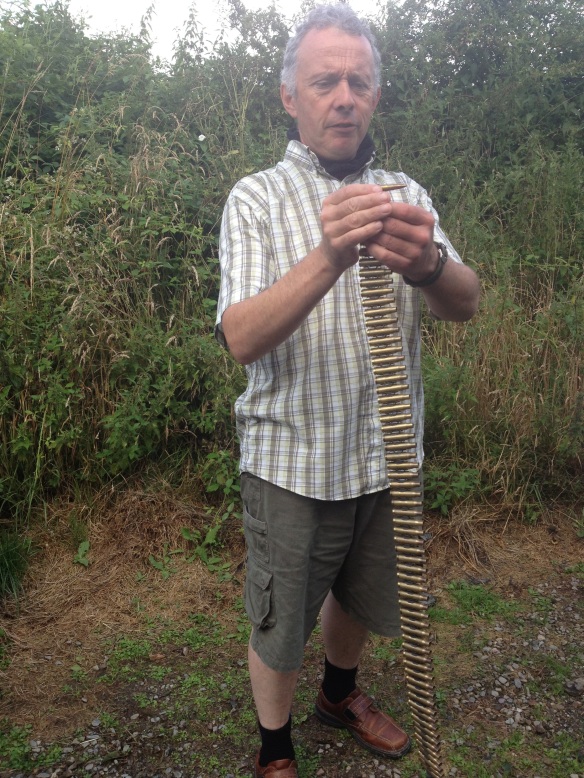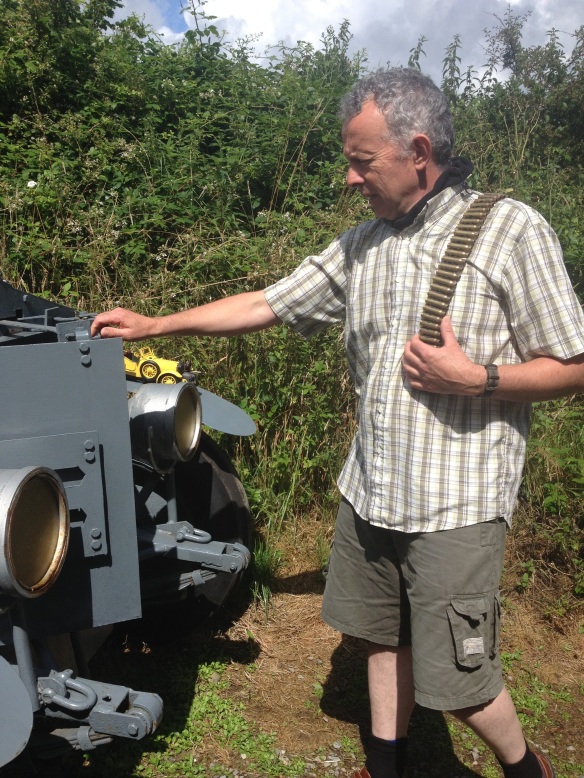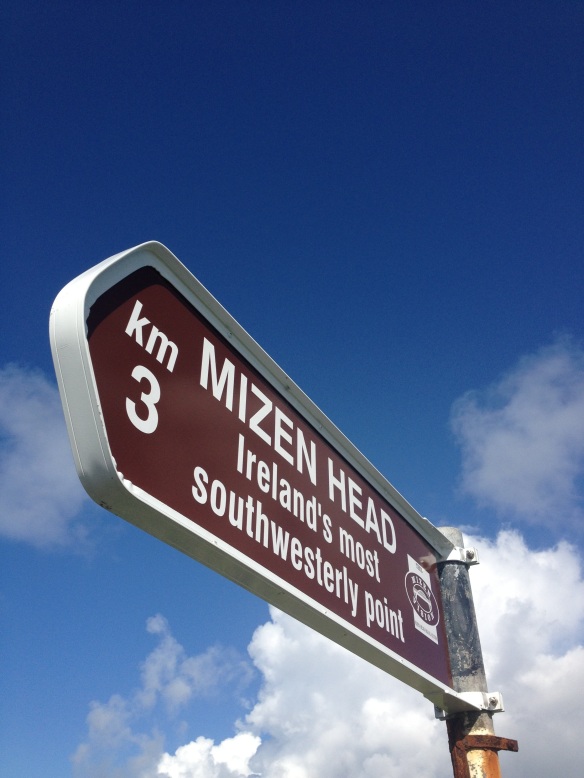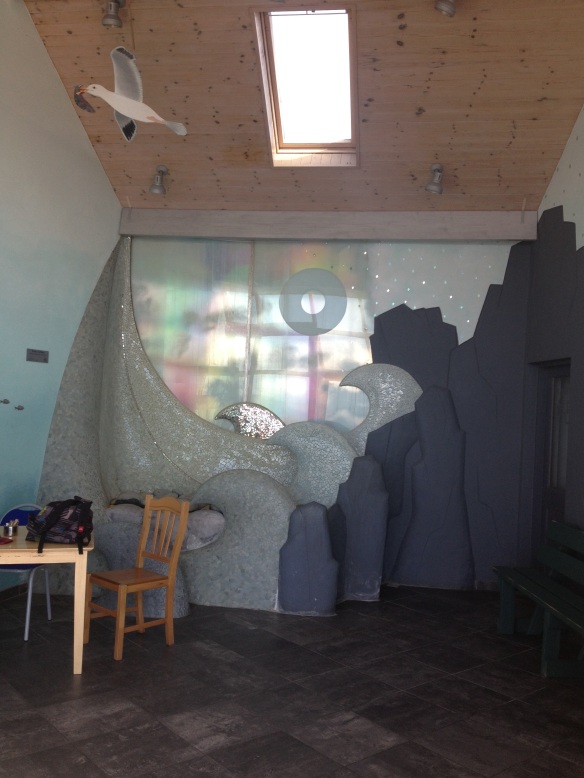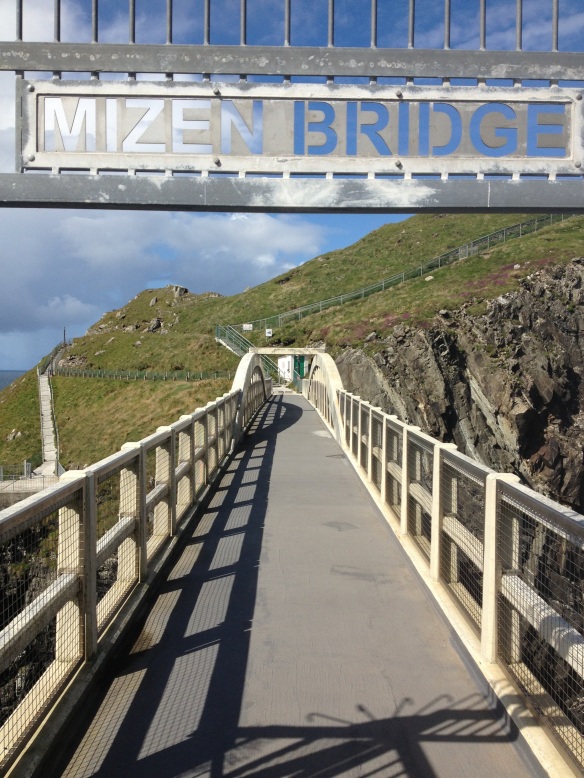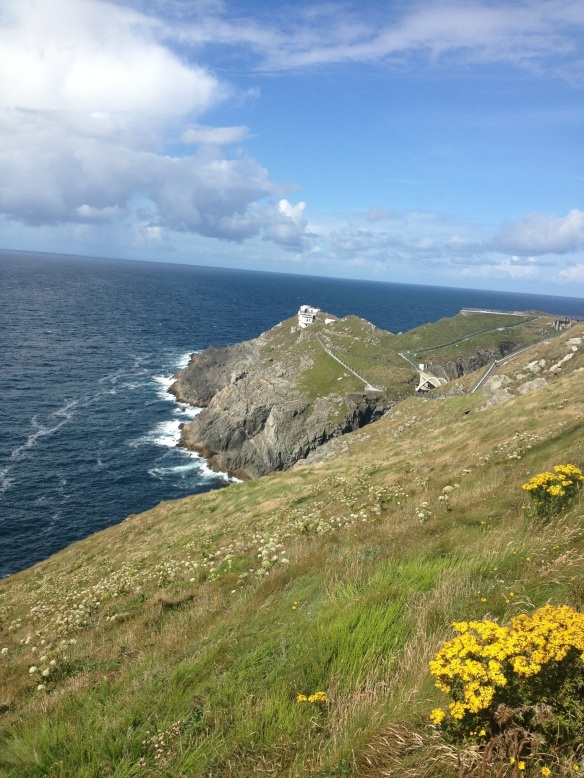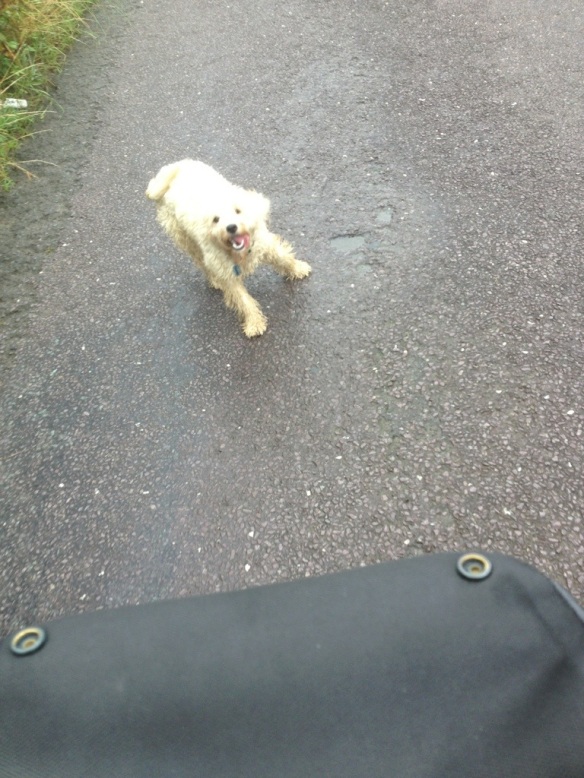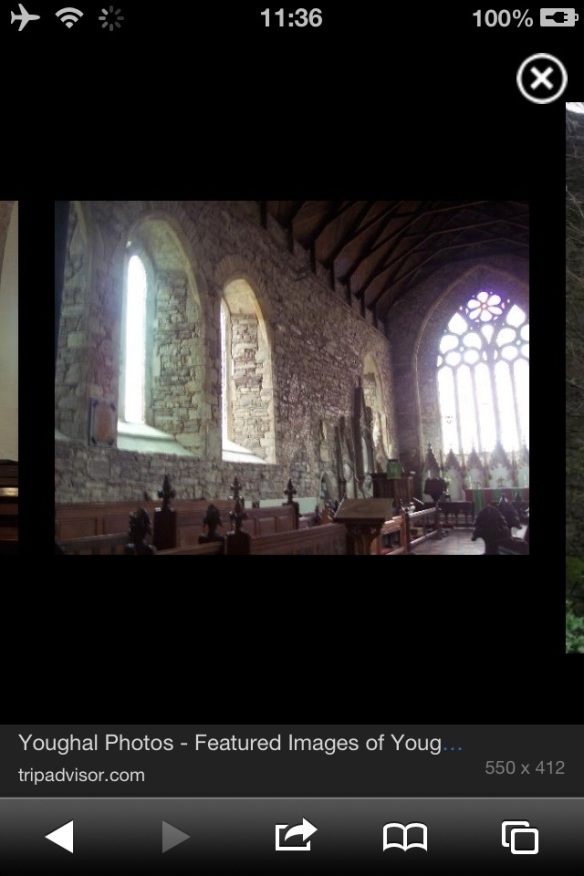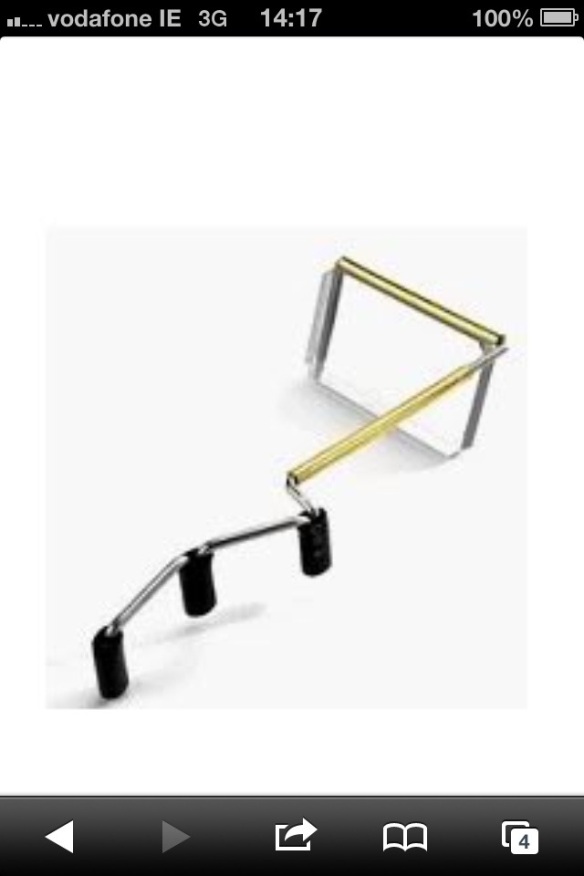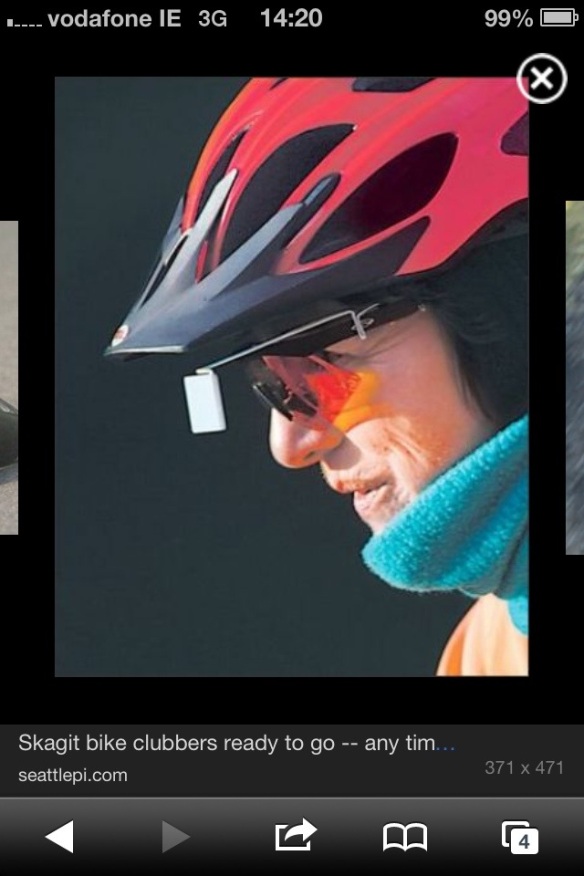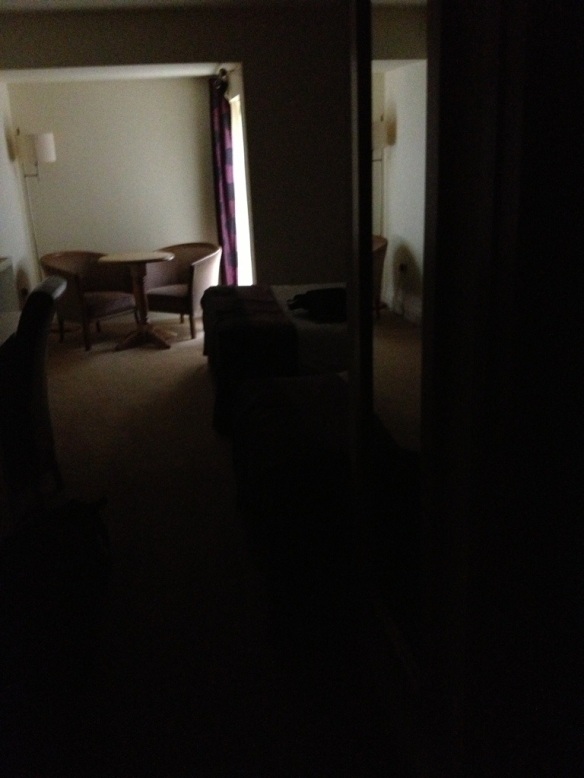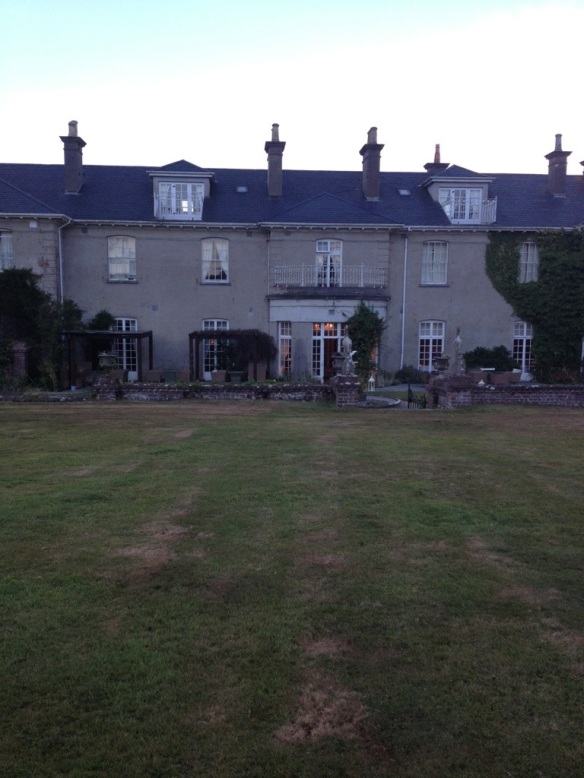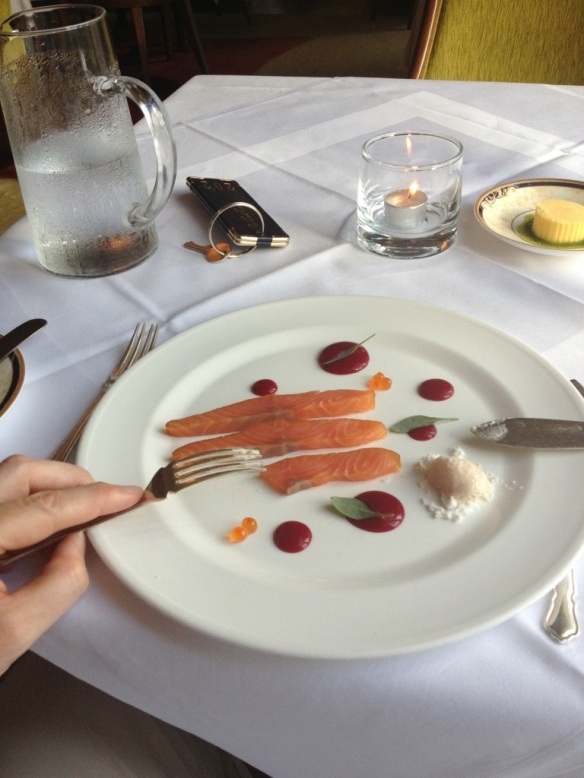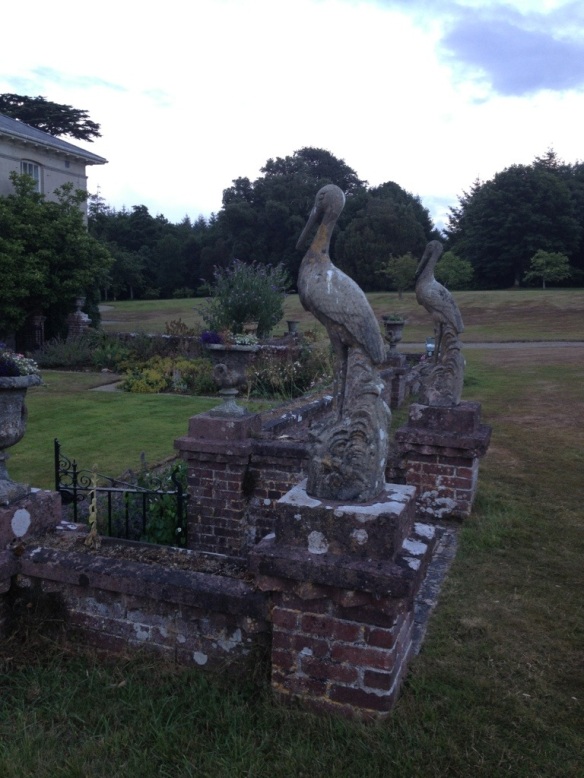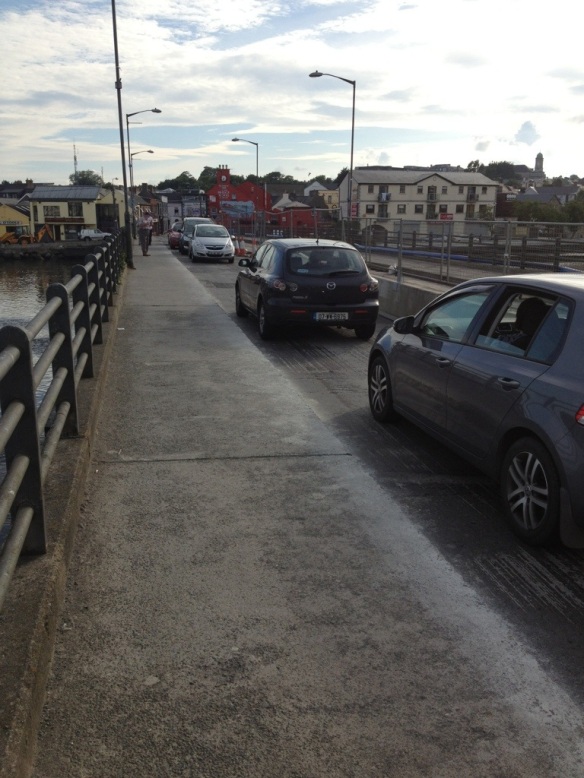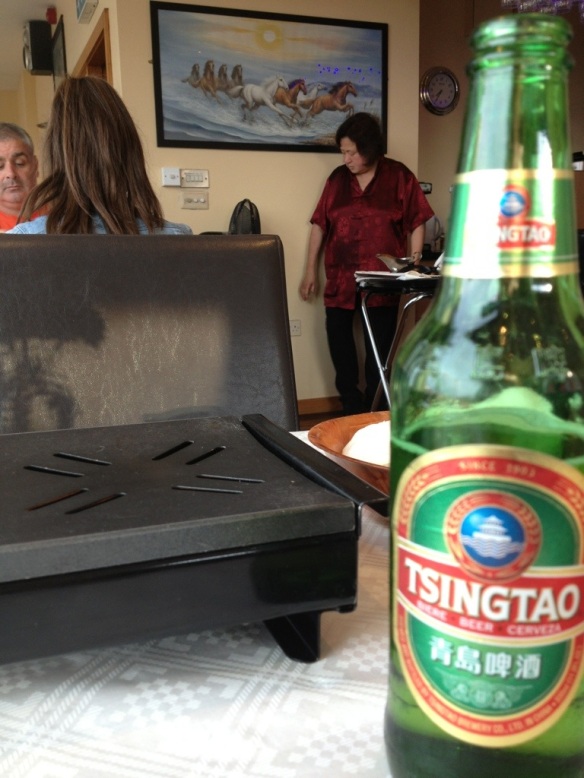It was in the detail that he revealed himself. His Visitor’s Centre, a creation of his own passion over 14 years, though blood lines were added motivation, was signposted at 1.3km distance from the main road.
Precision intrigues, and I left my route just east of Clonakilty in pursuit. I pushed the bike up tiny, winding roads adorned, in their central ridges, by tufts of greenest grass. A swallow reeled to my right, delighted by the slew of summer midges after rain.
Being alone, nature took on a hyper realism, as though I were entering an enchanted world. My senses, ever keen, were keener still.
My first encounter was with his wife. She was a warm and intense woman, possessor of the dazzling brown eyes and olive skin I associate with the south. She brought me to the boundary of their humble little property and pointed, well in the distance, to Béal Na Bláth.
It was, I thought, a beautiful place to die.
His daughter, a young girl with startling eloquence, flicked through photos projected from an iPad, pointer in hand when a detail of his life on the screen became important. She held her audience with assuredness. Dressed in an outfit that suggested she was fresh from the fields and perhaps about to go horse riding, she was uncommonly beautiful and surely no more than 16.
It was then her father’s turn.
With the greatest precision and dedication to conjuring atmosphere through image and word, he described what happened the day that Michael Collins died.
This mythic statesman of Ireland, only 31 years when he fell by a single shot to the head, was the keeper of many dreams.
Our guide was no ordinary promulgator of facts and incidents. His body became infused with Collins’ story, he traced the many possibilities of what might have happened, if this, if that. He then recounted what did occur.
He was wearing shorts, inhabiting the look of an errant army officer, run amok from some way back war. He had Clarke’s shoes, and socks that crept alarmingly high up his shins. And still he spoke on, captivating his audience with the feelings of that day back in 1922. Michael Collins was dead, and sartorial elegance would not diminish the fact.
He pointed to an iconic picture of Collins, emerging from a funeral of a comrade. To Collins’ right was a young orphan who would be mentioned and cared for in his will. At the perimeter of the picture, another child. A waif-like girl in white. Who was she? our guide wondered, like he would wage his fortune to find out.
We then took a field trip, heading outside to encounter replicas and miniature versions of the vehicles used in the would-be ambush (in truth, the ambush had been called off by the time the Collins convoy arrived. The outcome was much less certain than it might have been an hour previous. Many of the anti-treaty ambushers were already down in the pub).
Some in our party were shivering, the chill after a rain shower proving a little uncomfortable. He did not notice; he was caught in the detail of bullets and armoured vehicles and the provenance and eventual destiny of the yellow vehicle (Yellow!, he enthused. Can you believe it!) which carried The Big Fella on his last journey.
This whole mission of veneration – the museum, the talk, the reconstructed vehicles – was his own private venture. It was a daily homage truly worthy of a king, made real by a simple, precise volition.
As I left the Michael Collins Visitor Centre, the weak-bladdered clouds of West Cork gave way again.
But I did not care much. The cradle of Clonakilty was but a few short minutes away.
Brian McIntyre. August 2013
About Rothar Republic
My name is Brian McIntyre. During late July and August 2013 I am cycling the coast and borders of the Republic of Ireland, and using the opportunity to raise money for charity (The Peter McVerry Trust).
In the lead-up to the 100th anniversary of 1916, I’m interested to see how our little country is doing. Cycling its perimeter, observing and talking to its people, is my own way of taking the lie of the land.
I figure this is a 28 day-long expedition covering about 2,500km.
All monies go directly to the Peter McVerry Trust which supports young homeless people in Dublin to break the cycle of homelessness and move towards independent living.
http://www.mycharity.ie/event/rotharrepublic
If easier, consider sending me a pledge through private message.
Many thanks.
